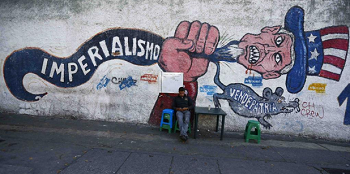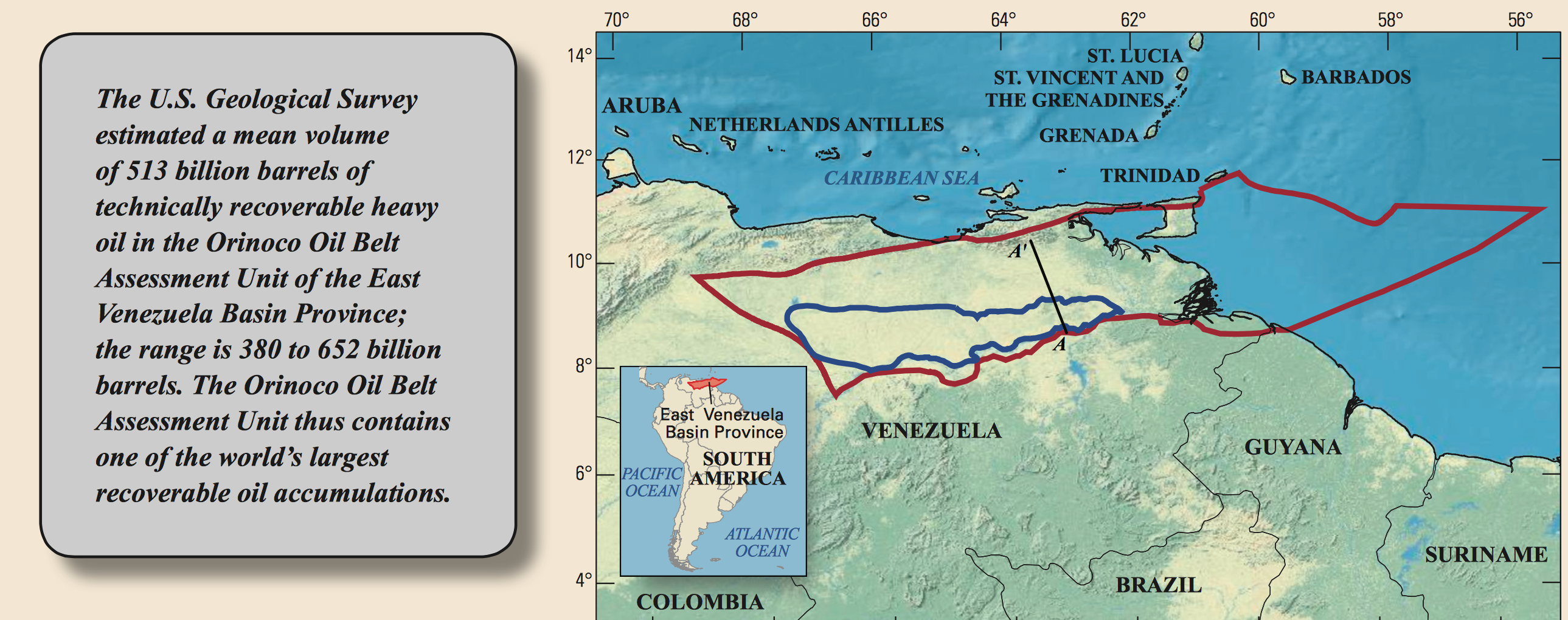Save Venezuelan Sovereignty: Oil Economy Destabilized. Peace-keeping Role by Russia, China, Non-alligned Nations?

A previous article touched on the issue. Preserving and protecting the sovereignty of any nation from internal conflict or the threat of foreign takeover is what peacekeeping is supposed to be all about.
Russia, China, and other countries supporting Venezuelan sovereignty, opposing the Trump regime’s coup attempt, should mobilize and deploy peacemaking forces to defend the country’s freedom in its time of need.
The UN defines the mission of peacekeepers as “a way to help countries torn by conflict create conditions for sustainable peace” under UN Charter provisions. More on this below and why peacekeepers may be the most effective way to defeat the Trump regime’s coup attempt.
Washington wants Venezuela transformed into another US vassal state.
The imperial prize is gaining control over its and other valued resources, including timber, iron ore, copper, diamonds, lead, zinc, bauxite, nickel, tin, mercury, gold, silver, manganese, chromium, platinum, titanium, tungsten, and phosphates.

USGS Survey of oil resources in the Orinoco Oil Belt
The rage of hardliners in charge of Trump’s geopolitical agenda to replace democratically elected President Nicolas Maduro with US-controlled puppet governance gravely threatens Venezuelan sovereignty and social democracy.
Republicans and Dems reject government of, by, and for everyone equitably, including at home.
Sovereign independent Venezuela, its model social democracy under higher, more normalized, oil prices and stable conditions, free from US political, economic, and sanctions war, is able to provide everyone in the country with vital social services – today a shadow of earlier times because of what’s going on.
During Hugo Chavez’s first three years as Venezuelan president, annual oil production, the country’s key revenue source, was around three million barrels a day (bpd).
From 2013 – 2015 under Nicolas Maduro, it was 2.5 million bpd. In January 2018, production was 1.65 million bpd, slumping during year to 1.25 million bpd, lower still to 1.15 million bpd by yearend.
It’s currently at 1.1 million bpd, likely to fall to 900,000 bpd or lower in 2019 as long as US sanctions war continues, supported by the EU, other countries, and many foreign enterprises.
Reuters reported that European buyers are sharply cutting purchases – pressured by the Trump regime the news service failed to explain.
Two of the world’s largest oil traders, Vitol and Trafigura, said that they would observe US sanctions – no matter their illegality.
The Wall Street Journal reported that oil storage is “filling up” in Venezuela because of a lack of buyers. The Trump regime threatened to severely punish nations and entities circumventing its sanctions to conduct normal business with Maduro.
Venezuelan oil union leader Luis Hernandez called what’s going on “an absolute disaster,” adding (t)here’s almost no way to move the oil.”
Tankers are delayed, redirected elsewhere, or positioned offshore because of fear of US sanctions. If unable to sell enough oil, Maduro’s government will run out of cash, Venezuela’s economy to crash more than already, an untenable situation.
It’s precisely what Trump regime hardliners want, hoping to switch the allegiance of Venezuela’s military from Maduro to usurper in waiting Guaido, a US creation with no legitimacy, a nobody elevated from obscurity to prominence, a figure to be used and discarded if and when no longer needed.
If the Trump regime’s plan fails, plan B may be military intervention for the first time regionally since Franklin Roosevelt withdrew US forces from Haiti in 1934.
Meanwhile, millions of Venezuelans are suffering hugely under severe hyperinflation and economic Depression conditions. Maduro is clinging to power tenuously.
Around 40 nations, most EU, Latin and Central American ones plus Canada publicly declared support for right-wing extremist/US-designated puppet Guaido – barely over one-fifth of UN member states.
At the same time, the Trump regime faces significant world community opposition to its attempted coup d’etat.
Half or more of EU member states have not publicly endorsed Guaido so far. Through his spokesman, UN Secretary-General Antonio Guterres has not recognized his legitimacy, saying “recognizing governments is not a function for the secretary but for member states.”
The African Union expressed “solidarity with the people of Venezuela and…support for constitutional president Nicolas Maduro.”
The largely US-controlled Organization of American States (OAS) got only 16 out of 34 member states to express support for Guaido, short of the required number needed for its endorsement.
Notably, 25 nations, including the Palestinian Authority, recognize Maduro as Venezuela’s legitimate president, including:
Russia, China, Belarus, Mexico, South Africa, Bolivia, Cuba, Nicaragua, El Salvador, Turkey, Serbia, Iran, Syria, Italy, Uruguay, Cambodia, Equatorial Guinea, Dominica, Suriname, Saint Kitts, Nevis, Saint Vincent, the Grenadines, North Korea, the Palestinian Authority
The UN Charter empowers Security Council member states to take collective action for maintaining international peace, stability and security.
When deployed, the stated mission of Blue Helmets includes restoring and maintaining peace, upholding the rule of law, maintaining order, along with pursuing economic and social development initiatives.
Far too often, things don’t turn out this way. Peacekeepers end up either creating more conflict than resolving it or being counterproductive and ineffective.
That aside, US, UK, and French veto power prevents Security Council authorization for peacekeepers to Venezuela other than under their control – why it’s essential for nations supporting its sovereignty and democratically elected Maduro to act on their own with consent from his government, a mission led by Russia and China.
Both nations have large investments in Venezuela to protect, especially China. Trump regime hardliners want their regional presence and influence countered and squeezed, ideally eliminated.
If their coup succeeds, Sino/Russian investments could be lost entirely or in part. If gotten, US control over Venezuelan oil can decide which foreign buyers it’ll be sold to, which others shut out.
The same hold true for Iranian oil reserves, the region’s largest after Saudi Arabia’s. Henry Kissinger earlier explained that controlling oil permits controlling nations – why the US seeks control over as much of the world’s supply as possible.
Preserving and protecting Venezuelan (and Iranian) sovereignty should be a red line for Beijing and Moscow.
A Sino/Russian peacekeeping mission to Venezuela, together with contingents from other nations supporting Maduro’s legitimacy as Venezuelan president, may be key to preventing the US attempted takeover of the country.
Diplomatic outreach to Washington is a waste of time, accomplishing nothing. Time and again, the US flagrantly breaches international treaties, conventions and agreements, along with Security Council resolutions and its own Constitution.
The only language Washington understands is toughness. International action to preserve and protect Venezuelan sovereign independence is the only effective strategy to challenge Washington’s destructive imperial agenda.
There are times when action is the only option. This is one of those times, a key moment in history when it’s vital for China and Russia to step up to the plate and do the right thing!
*
Note to readers: please click the share buttons below. Forward this article to your email lists. Crosspost on your blog site, internet forums. etc.
Award-winning author Stephen Lendman lives in Chicago. He can be reached at [email protected]. He is a Research Associate of the Centre for Research on Globalization (CRG)
His new book as editor and contributor is titled “Flashpoint in Ukraine: US Drive for Hegemony Risks WW III.”
http://www.claritypress.com/LendmanIII.html
Visit his blog site at sjlendman.blogspot.com.

